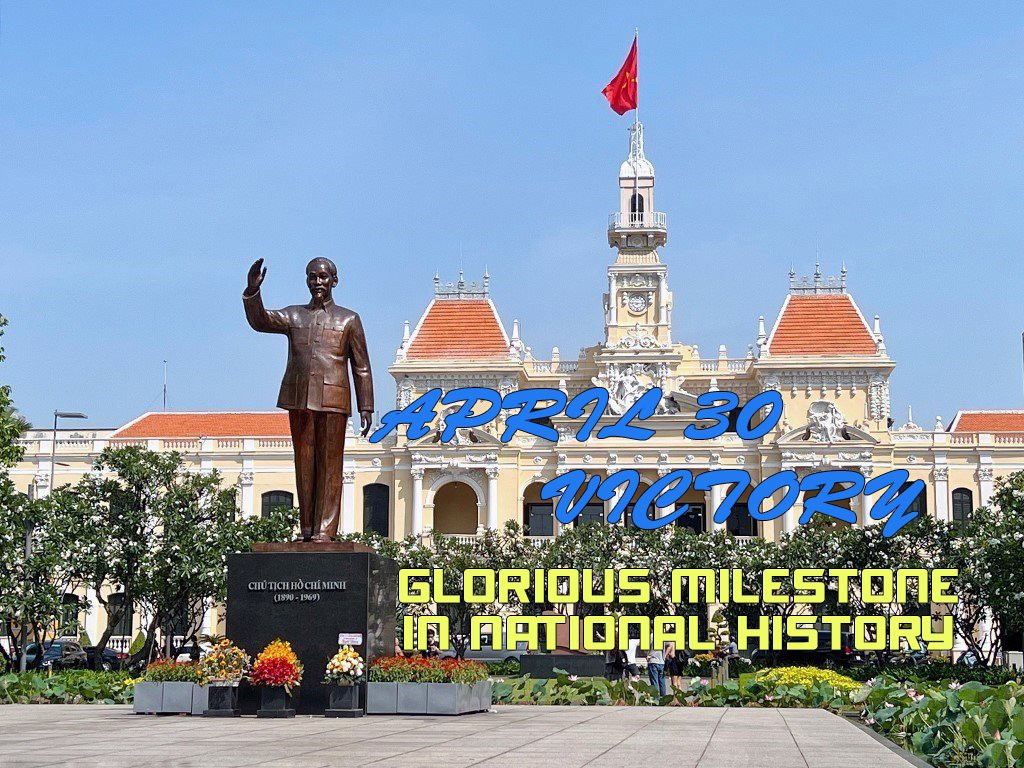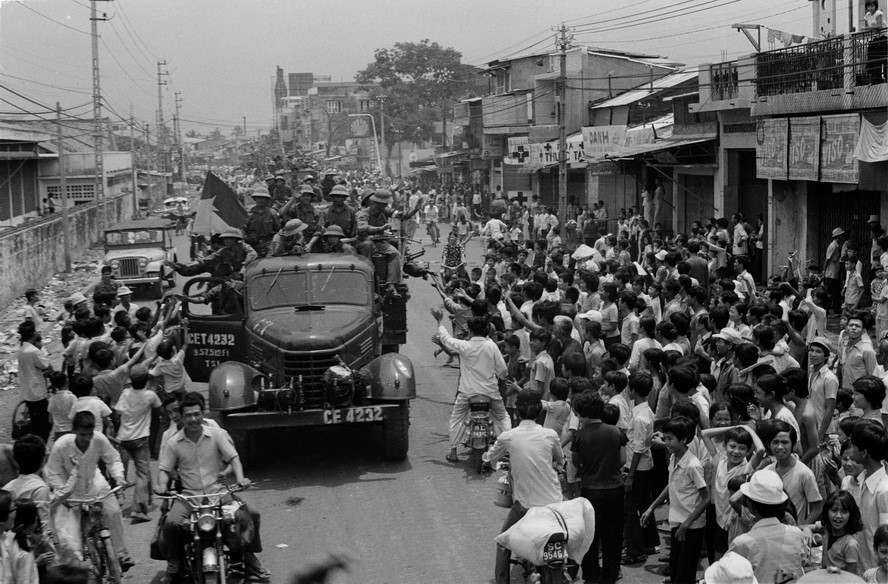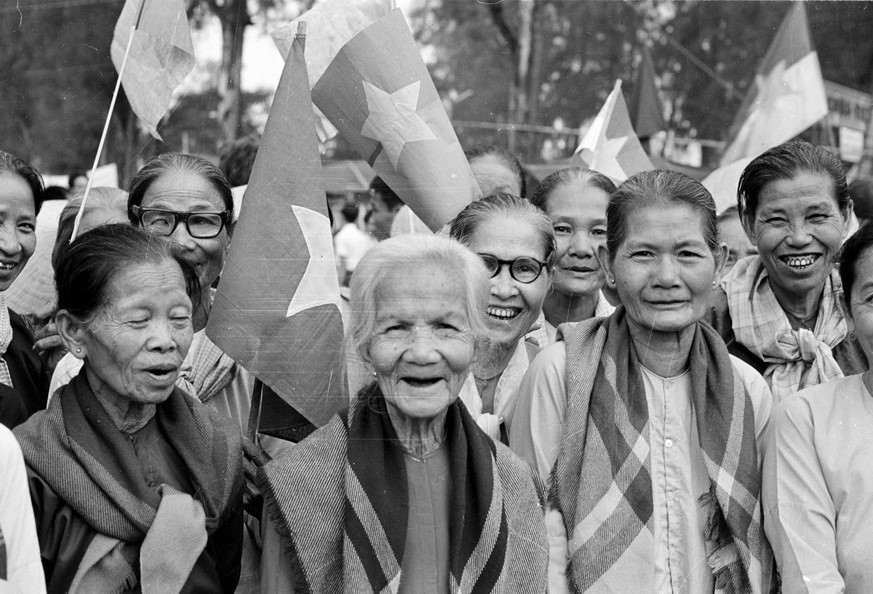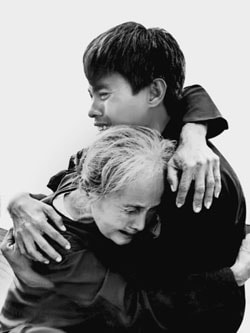April 30 Victory – Glorious milestone in national history
Multimedia - PublishedTime : 09:56, 30/04/2024

The Liberation of the South Day (April 30) is an occasion of great significance for all Vietnamese people. Every year, on this day, when national flags colour streets and every corner with red, the whole country recalls memories of the day to show their gratitude to older generations who devoted their lives for national freedom and independence.
On April 30, 1975, the 1975 Spring General Offensive and Uprising which culminated in the historic Ho Chi Minh Campaign gained the complete victory.
The event marked the end of the last war in Vietnam, becoming a glorious milestone in the revolution of the country under the leadership of the Party and President Ho Chi Minh, completely defeating the strength of US imperialists and the southern administration, regaining independence and freedom to the Motherland after 21 years of struggling, bringing Vietnam into a new era, that of national independence and socialism.
The image of soldier Bui Quang Than planting the first flag on the roof of the Doc Lap (Independence) Palace, followed by the unconditional surrender of President of the Republic of Vietnam Duong Van Minh and Prime Minister Vu Van Mau, has always been kept in the minds of generations of Vietnamese people as well as international friends who love peace and independence worldwide.

An insight into Liberation of the South Day
The April 30 Victory 49 years ago opened up a glorious page in the country’s thousands-year path of national construction and defence. The army and people of Vietnam defeated an enemy many times stronger than them, ending the domination that had lasted for more than a century of old and new colonialism in the country, becoming a typical victory of the world’s revolutionary forces, contributing to promoting the struggle of the people in the world for national independence, peace, democracy, and social progress, and encouraging peoples who were struggling for national liberation and fighting neo-colonialism around the world.
At 5pm of April 26, the Ho Chi Minh Campaign to attack the headquarters of the Saigon regime started. Five wings of the army overcame the enemy’s defence line to enter the heart of Saigon and storm the enemy’s headquarters. At 10:45 am on April 30, tanks and infantry forces broke into the Doc Lap Palace and captured the whole cabinet of the Saigon government, forcing President Duong Van Minh, who just took office on April 28, to declare an unconditional surrender. At 11:30 am, the Ho Chi Minh Campaign ended with a complete victory, marked with a yellow-star red flag flying on top of the palace.


Significance of Liberation of the South Day
The April 30 Victory is a clear testament to the indomitable spirit and proud self-reliance of Vietnamese people in the fight against foreign invaders. The victory ended the rule of imperialism and feudalism in the country, completing the people’s national democratic revolution, reunifying the country, and opening up a new era for the nation, enabling the whole country to move towards socialism together.
“This victory will be written in the history of our nation eternally as a most glorious page and an illuminating symbol of an all-winning victory of revolutionary heroism and human wisdom, and go down in world history as a great feat of the 20th century and an event of pivotal international importance and profound epoch-making magnitude”
Party General Secretary Nguyen Phu Trong




The date of April 30, 1975, is the milestone when Vietnam realise the desire of President Ho Chi Minh to completely liberate the South and reunify the nation.
During his lifetime, President Ho Chi Minh always kept his desire to liberate the South and reunify the country, and struggled to find revolutionary paths and methods for each stage of the anti-US war for national salvation.
“A day when the Fatherland is not unified and the South not liberated is a day when I cannot eat well or sleep peacefully”… “Unifying the country is the way of life for our people”.
President Ho Chi Minh wrote in a letter sent to the people across the country on July 6, 1956
It was the strong belief and aspiration of President Ho Chi Minh that became the urge in the hearts of every person in the North and the South of the country to join hands together for the goal of national reunification, and a strong motivation for the long and arduous resistance war against the US to end with victory. At 11:30 am on April 30, 1975, the South of Vietnam was completely liberated, the mountains and rivers became whole again, and the country was reunited in the joy of unity.

April 30 – A great celebration of the whole nation
As a tradition over the past 49 years, on the occasion of the Liberation of the South Day (April 30), the whole country bustles with activities, including visits to martyrs’ cemeteries to pay tribute to those who laid down their lives for the nation.
Leaders of the Party and administration at all levels visit policy beneficiary families, war invalids, wounded soldiers, and relatives of martyrs, showing their attention and responsibility of the Party and State to those who rendered great service to the nation.
Alongside, a chain of art, musical, and festive activities are organised across the country. The day is not only a festival of the whole nation but also a chance for promoting the historical tradition and the solidarity of the nation. This year, such activities have brought about a festive atmosphere to the whole country.
.png)
.png)

.png)
Enjoying independence, freedom, and peace today, each Vietnamese is proud of and grateful for the great sacrifice by the elder generations who shed blood for the freedom and reunification of the Motherland. Vietnamese people believe in the wise leadership of the Communist Party of Vietnam, the indomitable spirit as well as brainpower and creativity of the nation.
Younger generations have been continuing to promote revolutionary heroism, the spirit of self-reliance and great national solidarity. They adopt the determination to rise up and fulfill socioeconomic development and defence-security targets following the action programme to implement the Resolution of the 13th National Party Congress, thus building a more prosperous and beautiful Vietnam, as President Ho Chi Minh ever wished.

TB (according to VNA)




